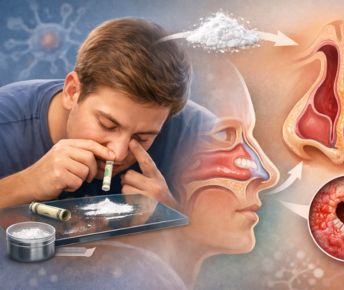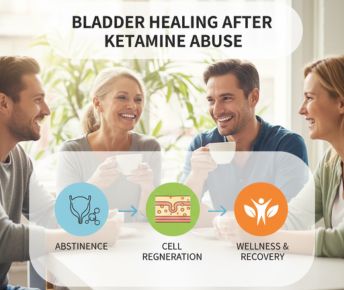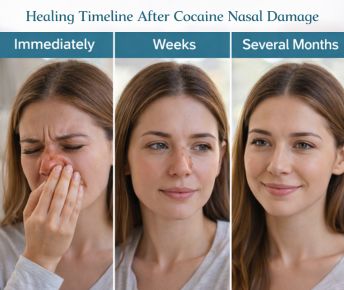I.Legal Challenges in Involuntary Admissions:
A. Lack of Clear Legislative Framework:- 1. Existing Gaps:
- 1.Right to Personal Liberty:
C. Capacity for Informed Consent:
- 1.Assessment Challenges:
- Determining the capacity for informed consent in individuals with substance use disorders can be complex.
- Legal safeguards are needed to ensure a fair and accurate assessment.
- Involuntary admissions raise ethical concerns related to the autonomy and dignity of the individual.
- Balancing the need for intervention with the preservation of individual rights is paramount.
- Involuntary admissions may contribute to the stigmatization of individuals with substance use disorders.
- The ethical imperative is to promote compassionate and non-discriminatory approaches.
- Involuntary admissions can strain the therapeutic alliance between individuals and healthcare providers.
- Ethical considerations involve fostering trust and collaboration even in challenging circumstances.
- Involuntary admissions may address immediate concerns but may not adequately target the root causes of substance use disorders.
- A comprehensive approach focusing on long-term recovery is essential.
- Individuals subjected to involuntary admissions may resist treatment, affecting the therapeutic process.
- The potential for relapse remains a concern post-discharge.
- Emphasizing community-based alternatives over involuntary admissions promotes sustainable recovery.
- Peer support groups, outpatient programs, and rehabilitation centers offer less restrictive interventions.
- Implementing robust informed consent protocols ensures transparency and respects individual autonomy.
- Clear communication regarding the reasons for involuntary admission is crucial.
- Introducing legal oversight and review mechanisms safeguards against potential abuses of involuntary admissions.
- An independent body can ensure fair and ethical procedures.
- Investing in community-based rehabilitation programs empowers individuals in their recovery journey.
- These programs foster a sense of belonging and support.
- Peer support groups play a crucial role in building a sense of community among individuals in recovery.
- Shared experiences create a supportive environment.
- Peer support groups empower individuals to navigate challenges together, reducing isolation.
- Collective wisdom and understanding enhance the recovery process.
- Integrating peer support groups into comprehensive treatment plans enhances the overall effectiveness of interventions.
- A collaborative approach addresses diverse needs.
II. Ethical Considerations in Involuntary Admissions:
A. Autonomy and Dignity:- 1.Respecting Individual Autonomy:
B. Stigmatization and Discrimination:
- 1.Perpetuating Stigma:
C. Therapeutic Alliance and Trust:
- 1.Building Trust:
III. Outcome-Based Criticisms of Involuntary Admissions:
A. Limited Long-Term Efficacy:- 1.Addressing Root Causes:
B. Potential for Resistance and Relapse:
- 1. Resistance to Treatment:
C. Community-Based Alternatives:
- 1. Exploring Less Restrictive Options:
IV. Leveraging Ethical and Legal Safeguards:
A. Informed Consent Protocols:- 1.Enhancing Transparency:
B.Legal Oversight and Review Mechanisms:
- 1.Establishing Accountability:
C. Community-Based Rehabilitation Programs:
- 1.Empowering Individuals:
V. The Role of Peer Support Groups in Recovery:
A. Building Community Connections:- 1.Strength in Shared Experiences:
B. Empowering Through Shared Understanding:
- 1.Navigating Challenges Together:
C. Integration into Comprehensive Treatment Plans:
- 1.Holistic Approach:
Conclusion:
Involuntary admissions for substance use disorders in India pose intricate challenges from legal, ethical, and outcome-oriented perspectives. Navigating these complexities requires a delicate balance between public health imperatives and the preservation of individual rights and dignity. Samarpan Recovery Centre in Pune advocates for a comprehensive, compassionate, and community-based approach that respects autonomy, leverages legal safeguards, and prioritizes long-term recovery. By fostering a deeper understanding of these issues, we aim to contribute to a more inclusive and effective approach to substance use disorder interventions in India. Samarpan is an International standard drug and alcohol rehabilitation centre located in Pune, India providing high quality care in a structured and evidenced based program using our recognised our Bio, Psycho, Social, Spiritual approach and ;rski-CENAPS Relapse Prevention Model, fully staffed with credentialed addictions therapists, 24 hour medical and nursing support in scenic and premium facility. Put recovery at the top of your list, call Samarpan today and take the first step in your journey back to life.
























 Yes, many offer serene environments and solid therapeutic frameworks. However, quality varies, so it’s essential to research accreditation, staff credentials, and therapeutic depth.
Yes, many offer serene environments and solid therapeutic frameworks. However, quality varies, so it’s essential to research accreditation, staff credentials, and therapeutic depth.




